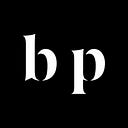How I Started Freelance Writing for a Living (and What I Wish I’d Done Differently)
There’s no one right way to become a full-time writer, and many different ways you can get there.
But there are definitely wrong ways, which is the path I took.
“But Jean,” you might be asking, “how could it be wrong if it got you where you are?”
Because it took longer than it should have to get here, and I had to endure a lot of pain and misery along the way that could have been avoided if I’d been more intentional and had a plan from the start.
My freelancing career was thrust upon me suddenly when I was laid off from a pretty good administrative assistant job at the start of the Great Recession in 2009. One of the things I loved best about that job, besides the fact that I was one of the higher-paid admins and enjoyed some pretty sweet employee benefits (hello group health insurance, how I miss thee), was that much of it involved simply being available in case I was needed — which meant I had a lot of down time I could fill with writing.
If you’re going to have a full-time job to support your writing aspirations, you could do a lot worse than administrative assistant. But I digress.
When the axe fell, my husband and I had a little savings, and I came away with a decent severance package, so the situation wasn’t dire. Naturally, I got busy right away searching for another admin job — but as it turned out, over half the city’s administrative staff had been cut that day. Those jobs were few and far between, and the competition was fierce.
Things were growing worrisome, but before they could become desperate, I decided to strike out on my own and start a freelance business. But not writing. I was a fiction writer. I believed I couldn’t write non-fiction for other people and have any energy left for the novels I wanted to write. Or at least, that’s the excuse I gave myself.
The truth is, I lacked confidence, despite having already sold a few articles here and there over the years. Not that I wasn’t confident in my writing ability — I simply found the whole process of finding people willing to trade money for my words too intimidating.
So instead I set myself up as a virtual assistant. And that went fairly well. It helped keep the lights on and a roof over our heads. I was well-versed in HTML and CSS, and since that’s what most of my clients hired me for, I eventually evolved into a freelance web designer. That went well, too — until it didn’t.
It was 2013. I’d gone months without any work, and out of sheer desperation, I answered a Craigslist ad seeking people to write articles. That’s how I signed up to my first content mill, and how my freelance writing career officially got underway.
The trouble with content mills, besides the low pay and exploitative labor requirements, is that once you find yourself stuck on that hamster wheel, you don’t have time to take steps to get off. Not only were all my fears of not having the time or energy to work on my fiction realized, but I had no time to look for better writing work. Looking for quality clients and crafting pitches takes time and energy I didn’t have. Also, articles branded with the content mill’s logo next to my byline don’t generally make good portfolio pieces.
Of course, I knew none of this when I signed on. Which is how I ended up spending three years stuck on the content mill assembly line before I lucked into my first steady, high-paying client. Ironically, despite everything I’d been told about how content mill pieces won’t get you hired, it was a piece I’d written for Demand Studios that landed me that job.
Suddenly I’d traded content mills for a content marketing agency, and in a future issue I’ll explain the difference. But the agency provided steady work — although not an overwhelming amount — at better pay than I’d ever dreamed of. That agency assignment opened the door to more, and those portfolio pieces landed me even better assignments with a better agency.
At last, I had a solid freelance writing career that I was happy with, and I had room in my life to write fiction again.
I know that sounds like a happy ending, and truthfully, after a few ups and downs, things have mostly continued to improve. But like I said, I could have saved myself so much time and trouble getting here if I’d only done my research and developed a plan.
What I Should Have Done Instead
If I could go back and do it over again, here’s what I would have done:
- I would have gathered up those few pieces I’d sold previously and used them to start my professional writing portfolio.
- I would have researched publications I wanted to write for and brainstormed article ideas to pitch them.
- I would have sent out query letters pitching my ideas until I landed an assignment.
- Lather, rinse, repeat.
Or, I would have followed the template of my virtual assistant business and set up a writing service, and got busy pitching my services to prospective clients.
Either way, I likely would have been much happier, and been paid much better, much sooner.
I’ll break down all of these steps in future articles, but for now, here are the key takeaways from my experience:
- Do your research and have a plan.
- If possible, hold onto your day job until you can make a smooth transition to freelancing. Desperation never leads to good choices.
- Exploitative content mills and writing jobs can keep you afloat in desperate times but mostly they’re a weight that will drag you down and slow your progress.
- Do what you need to do to get over imposter syndrome. Don’t allow it to keep you from taking the next right step, even if you have to do it scared.
- If you’re creative, you’re creative. Exercising one type of creativity (i.e., writing non-fiction) won’t prevent you from exercising another type (i.e., writing fiction), as long as you can strike a balance and not allow one type to consume your life.
- If a piece you’ve written is a good representation of your writing, put it in your portfolio. Don’t worry about whether or not it “counts.”
- A good idea combined with demonstrated ability to write it can get you hired no matter how little experience you have.
Truly, it’s not that difficult to break into freelance writing. But it’s much better to take the time and develop a deliberate plan than to stumble around haphazardly, seizing any gig that comes your way. Stay tuned for actionable tips and advice, including a career road map to help you plan and execute your freelance writing career. Consider subscribing to my Medium channel so you don’t miss a post!
A modified version of this article originally appeared in The Working Writer on Substack.
Jean Marie Bauhaus is a freelance content marketing writer and indie author as well as an avid pet blogger. In addition to a number of both traditionally published and self-published novels and short stories, she’s also the author of Self-Publishing for the Broke Author. Learn more about her books and writing at JeanMarieBauhaus.com, where she’s on a Quixotic quest to bring back the personal blog.

